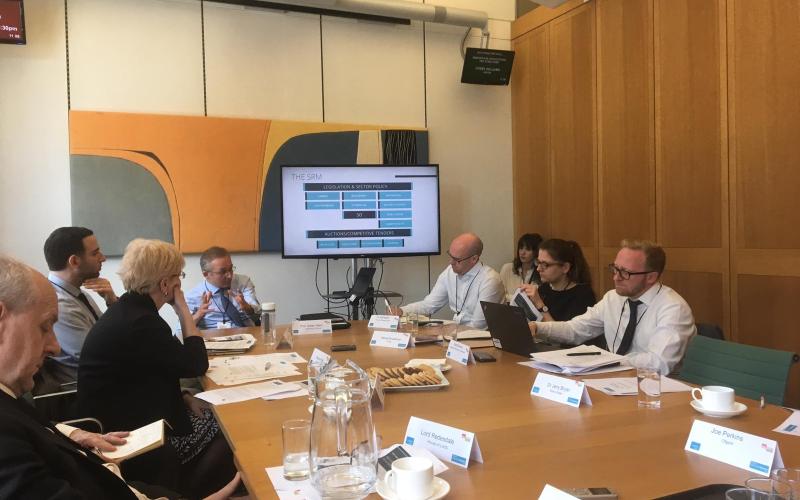Professor Dieter Helm presents Systems Regulation Model to WSBF members
With the current Government pushing regulators to toughen up their interventions and Labour's proposals for re-nationalisation, the stakes for the future of the utility sector couldn't be higher. The Systems Regulation Model (SRM) developed by Professor Dieter Helm, proposes an alternative approach, by letting markets set prices and the provision of public goods through system plans.
On 14th May, the Westminster Sustainable Business Forum convened a roundtable to discuss how the regulation of utilities could change in the future as we move to a lower carbon, smarter and more resilient system. The roundtable was chaired by Maxine Frerk, Director at Grid Edge Policy and speakers included:
- Professor Dieter Helm CBE, University of Oxford
- Rich Sullivan-Jones, National Audit Office
- Rt Hon Lord Whitty, House of Lords
- Dr Jeff Hardy, Imperial College
- Alena Kozakova, Ofwat
WSBF Recommends:
- The current 5 year price review system is inappropriate for addressing long-term issues and needs to change. Challenges in the utility sector such as achieving net zero carbon emissions, combatting loss of biodiversity, and improvements on the catchment-scale cannot be solved by thinking in the short-term.
- It should be for Government to decide what kind of systems it wants. Big decisions should be made at the national level. This way, multi-generational issues can be addressed and trade-offs (such as between consumers and the environment) can be appropriately balanced.
- Regulators should acknowledge common work areas between sectors and liaise with each other. The importance of communication between systems will only become more important in future and efficiency savings can be made by working together.
- Government needs to think in the long-term. If it can be demonstrated that fulfilment of a long term goal (such as the 25 Year Environment Plan) will be economically better than the alternatives, then cross party consensus can be achieved. The 5 Year price review system doesn’t allow political parties to sign up to a bigger vision as to how infrastructure can be built.





